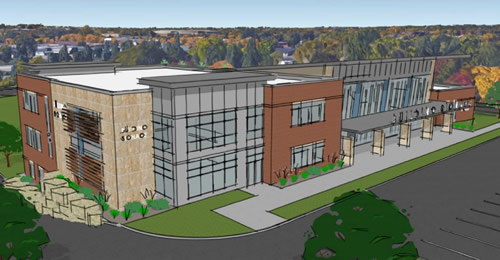Madison Area Technical College Breaks Ground on New South Campus
Madison Area Technical College in Madison, WI, broke ground recently for the school’s new South Campus. The campus is the product of the college working with community leaders to address existing educational and training gaps in South Madison. It is designed to include meeting rooms, classrooms, and a suite of additional community/social service offices. The South Campus will also serve as a hub for STEM and IT training, which will be offered to both current students and the citizens of South Madison.

Funding for the project includes a $3 million contribution from Great Lakes Corporation, which will match gifts from other donors. The South Campus is currently in the phase of site redevelopment and initial construction and is planned to open in the fall of 2019.